It can feel daunting to think about the weeks ahead. But many people
have not only lived but thrived in similar circumstances. A polar
scientist, a monk, a solo sailor and more offer tips
Marion Dierickx, polar scientist
Dierickx is a postdoctoral fellow in experimental cosmology at Harvard, and spends two to three months a year at the Amundsen-Scott station at the south pole carrying out maintenance on her department’s telescopes.
Dierickx, 29, also becomes very attentive to change. “Things like plants that grow noticeably or changing the decor of your room. It’s a good way to channel energy,” she says. “Nurturing our environment can only help our psychological balance.”
Sleeping at the station is not easy – when it is the polar summer it is light 24 hours a day. “Sleep is terrible, not just because of the light, but because it’s high altitude. You’re at 3,000 metres altitude, there’s only 70% oxygen. People will routinely have nosebleeds every morning. The combination of those things makes getting rest very challenging, and that makes everything else more challenging.” She says the key is to force yourself to sleep at set times. She also recommends board games and escapist books. Avoid War and Peace, and stick to thrillers.
How does she find living in such close proximity to a small group of people? “That is one of the main challenges,” she says. “Especially if there is someone you don’t get along with. I’ve found that I have to proactively use my good side, try to repair relationships and work on my generosity. I confront people with kindness.”
Ryan Ramsey, submarine captain
Ramsey captained the nuclear-powered submarine HMS Turbulent from 2008-11.
Ramsey suggests limiting your exposure to TV news. “The constant news is such a dynamic change at the moment and it’s all negative,” he says. “Picking it up once a day will give you time to do other stuff.” He also stresses the importance of exercise. “If you are healthy physically, you will be healthy mentally. I used to exercise with dumbbells in my cabin, which was tiny. And keep mentally fit as well. It’s about reading books and doing something different. This is an ideal opportunity to learn something new.”
He describes a submarine as “a steel tube with 130 people in it” and admits there can be friction on a long deployment. “De-conflict early,” he says. “Have a chat; find out what the issues are.”
His final piece of advice is to “enjoy what’s there”. Focus on what you have got rather than what you are being denied. “Try to stay off the topic of what happens next,” he says. “You can only control what you can control.”
Christopher Jamison, monk
Jamison is president of the English Benedictine Congregation and author of Finding Happiness: Monastic Steps for a Fulfilling Life. Drawing on almost 50 years experience as a monk, he has helped set up a website, alonetogether.org.uk, which addresses loneliness and self-sufficiency raised by the current crisis.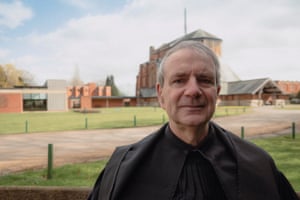
How does the monastic tradition help counter such feelings? “If you just leave the day undifferentiated, it can get on top of you. But if you create your own rhythm, you’ll find that the day is more sustainable, bearable and enjoyable.”
Jamison draws a distinction between boredom and lethargy. “Boredom is when there is absolutely nothing to do. Lethargy is when there are things to do that you can’t be bothered doing. Most people suffer the latter, but they call it the former because it lets them off the hook. In the monastery, people are always ringing bells telling you what to do next, so you don’t have time to be bored.”
Positivity is the key. “Do not begin the day by rehearsing your grievances. Begin by remembering you’re alive and there are good things still. You may have to do tough things later, but take it one step at a time. Begin with gratitude; then ask for the grace to face the day and its difficulties. Then go and address the difficulties.” Doesn’t all that presuppose a belief in God? “You can,” Jamison insists, “be grateful without believing in God.”
Sir Robin Knox-Johnston, round-the-world sailor
In 1969, Knox-Johnston became the first person to make a nonstop single-handed circumnavigation of the globe when he was the only competitor in a round-the-world yacht race to make it home. He was in his late 20s, and sailing a 32ft yacht; the journey took 312 days.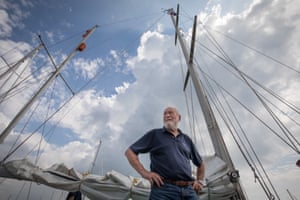
How did he keep himself together mentally? “That worried me,” he admits. “I took to learning poetry. I had a lovely anthology by Field Marshal Wavell called Other Men’s Flowers. I committed all these wonderful poems to memory. I’d sit there steering while reciting to myself.
“I tried to keep to a regular schedule. Sleep during the night, although obviously at times you couldn’t because you had to be on deck. I’d make myself dinner, check everything was all right, then go and have some sleep, wake three or four hours later, check things, go back to bed again. Then, as the sun rose, I’d get up, have a cup of coffee, make breakfast, check the boat and take my sights to work out where I was.”
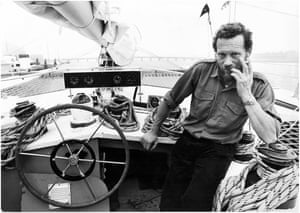
Did he miss company? “Oh God, yes,” he says, just as emphatically. “Going past Australia with my receiver working and picking up dance music on a Saturday night. You thought: ‘What the hell am I doing out here on my own?’ But then you think: ‘I’m still in this. I’m not giving this up for anything.’” And sex? “You have to put it out of your mind,” he says. “You need all your energy for the boat.”
Christa Byrne, Scottish islander
Byrne has lived with her husband on the island of Colonsay (population 135) in the Inner Hebrides for more than 40 years, first running a hotel and now a bookshop. It is one of the most isolated communities in the UK.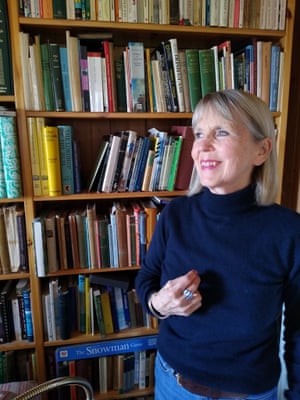
There are pros and cons to island life. “There is no crime, and people look out for each other. On the other hand, people know everyone else’s business.” Does the isolation ever get her down? “No”, she says. “I am a very easy person. But for some people it’s almost impossible. That’s why we can’t sustain much of a population here. It’s heaven on a spring morning, but for weeks and months in the winter it’s really hard.”
Byrne says the years-long feuds that used to characterise island life have lessened. “People have their opinions and sometimes it would make your hair curl listening to what people say, but overall we do realise we’re all in this together.” She also says the drinking culture is not what it was. “People have woken up to the fact that having at least one car in the ditch every weekend is not a good idea.”
Her tips for the newly isolated? “Keep busy. Don’t slouch around. Get up in the morning, get dressed, have a plan. It’s too easy to fritter away your time, and that is very soul-destroying.” Does she ever get bored? “I don’t really,” she says. “There’s always a good book to read, especially if you own a bookshop.”
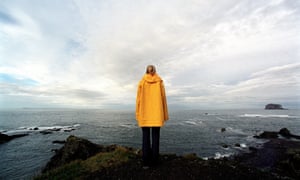
No comments:
Post a Comment